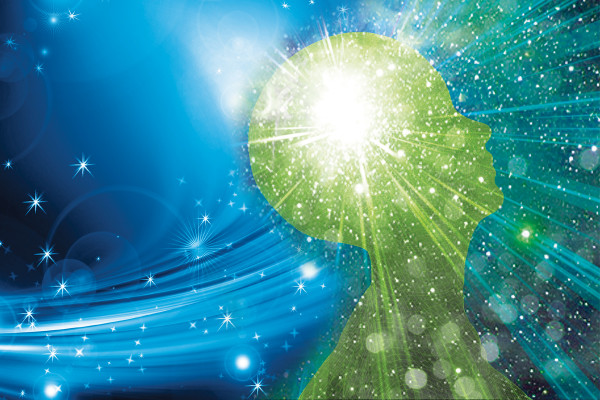I want to receive new articles by email
The Power of Music
By Krishna Dias
There you are, feeling sad and down... and suddenly your mood changes when you hear a song. Who is not familiar with this wonderful sensation? We know that music touches us deeply, but why is that so? Even Charles Darwin, the father of the theory of evolution, declared himself baffled by our capacity to both understand and create music. For him, it was “one of the most mysterious abilities of human beings”. Priests and priestesses of traditional societies used the secret arts of sound, music and words to teach, cure and illustrate. These traditions believed that sound is a direct link between the human and the divine. Music affects us so deeply that it seems like magic. Some people when they listen to certain music will even feel their hairs stand on end! The different sounds that we hear resonate in our eardrums, but they also go much deeper within our consciousness. The human ear can pick up as many as 20,000 vibrations per second, but the human body is even more sensitive as it continues to feel vibrations that can no longer be heard.
There are various theories as to why we are so connected with music. One of the most popular ideas within scientific circles is that music emerged from “sexual selection”, as a sort of sensual exhibition that would make one individual stand out over others in mating rituals. However, another theory was suggested by research carried out by the University of Wisconsin (US) which showed that some musical themes are related to the emotional calls of our ancient ancestors. For example, the sound of an ascending staccato (a series of short and separate notes) tends to put us in an alerted state, whereas long and descending notes have a calming effect. These sound patterns seem to contain universal meanings for people in many different cultures, and they resonate with animals as well. Perhaps music reflects associations we made with the sounds emitted by animals, helping us to express our feelings before we had words. It could have been a type of proto-language that opened the way to the spoken word.

Music has been part of human activities since the beginning of our existence. No present nor past culture that we know of went without music. Some of the oldest artefacts found in archaeological digs are musical instruments: flutes made from bones, and animal skins stretched out to be used for percussion. History tells us that the ancient Egyptians – from whom the Greeks took many of their ideas in the fields of mathematics and music – believed that the universe possessed a perfect musical harmony. For them the Solar System had its own octave that vibrated in harmony with the rest of the universe. They considered that each planet within our Solar System had a particular tone, and that taken together the other planets created a coherent musical arrangement.
In today’s world we are beginning to recognise the power of music in many different areas, including healing and social cohesion. Music therapy has obtained amazing results in people of different ages with varying physical and emotional difficulties, including children with different capacities such as autism. Studies of primitive cultures show that music is also an important factor in the development of human societies. When our ancient ancestors began to live in ever larger groups, singing and dancing together seems to have helped them to be more altruistic, and to build a stronger collective identity. Actively participating in music increases its impact, but it is not absolutely essential to participate in order to feel the benefits. Simply listening to a song that produces a “musical frisson” can be enough to increase altruism.

According to studies in neuroscience, when you move in synchronicity with someone else (like singing and dancing), your brain starts to create a fog in your perception of yourself. You begin to think and feel that the others are similar to you and share your opinions. With more solidarity and less internal conflicts, a group is better equipped to survive and reproduce and the best way to get people to move together is through music. This is beautifully illustrated by the musicality of the BaBinga tribe in Central Africa who have songs and dances specially dedicated to most of their daily activities. Everything from collecting honey to hunting elephants has its own melody.

Music really does have the power to unite. Since it has such an important effect on our relationships, it seems logical to think that it also moves in synchronicity with our hearts... helping us to create emotional connections. We can all think of songs that are associated with some of the most important events in our lives. From the moment of our birth to the day that we die, we are living in a soundtrack... surrounded by melodies that are braided with our lives. So it is not surprising that we dive into a cocktail of emotions and memories when we hear our favourite songs. Clearly we are musical beings and we possess within us the gift of music – it is part of our nature. Music has surrounded and nurtured us since the moment we were conceived. From the sounds that came to us in our mothers’ wombs, to the beating of our own hearts... music and rhythm have always been an important part of our very essence. •











